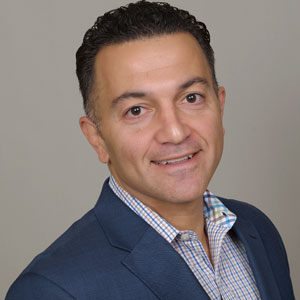By Clode Moradi, MSPFP, CFP®

This article is in continuation of my last one regarding “The Tax Cuts and Jobs Act of 2017â€
Deductible Home Loan Interest Matters
Please read that first, so this article makes sense.
HELOC’S and HOME EQUITY DEBT:
As I mentioned in the previous article Deductible Home Loan Interest Matters, under the new rules, you may still be able to deduct interest paid on home equity debt depending on the circumstances and what the loan is used for. Before the new rules, the restrictions on what those funds could be used for were different, so it was easier for people to use this type of debt to create some tax advantages (subject to a limit), such as pay off bad debt or pay for college expenses. Under the old rules, the interest on up to $100,000 of home equity debt would qualify for this deduction. So, even though you could use home equity debt to pay off things such as credit card debt or college expenses (and still get a deduction on the interest paid on the loan), only up to $100,000 of this type of debt would qualify.
Now things are different. The $100,000 deal is gone and even older home equity loans that were used for these purposes have not been grandfathered in. Under the new rules, if the home equity debt is used to acquire, build, or purchase a second home (that qualifies as a second home), then the interest on that loan is deductible on up to a total of $750,000. The $750,000 limit is a total, regardless of whether the debt is your main mortgage, a second, HELOC, or home equity loan, as long as the loan is secured by the property.
A very common misconception that I hear about all the time from clients is the idea to do a cash out refinance on a loan that existed prior to December 2017, in an attempt to preserve and make use of their grandfathered $1,000,000 allowance. If this were true, they would potentially and theoretically be making use of the larger $1,000,000 limit if they had a grandfathered loan and their current loan principal balance was less than $1,000,000. Although this may sound like what Oprah would call an aha moment, it is unfortunately not. Doing a cash out refinance will not loosen up the rules on the cash out portion of your new loan that’s in excess of the old principal balance you had on your prior mortgage. Nor will it allow you to use your grandfathered status to push your loan balance back up to $1,000,000/ The excess amount taken out will be treated under the new rules and limitations.
What does this mean?
You cannot do a cash out refinance to try and push your grandfathered loan balance back up to $1,000,000.
REFINANCE
Another misconception is that doing a refinance will automatically kill the benefits of being able to take a deduction on up to $1,000,000 of your old grandfathered loan (before December 2017). This is also not true but be careful here because it depends. You may still qualify for the higher $1,000,000 debt limit enjoyed by your grandfathered loan, but only on the portion of the loan being refinanced that is equal to your principal balance being transferred from the old loan. Again, doing a cash out will not make the cash out portion eligible, just because the original loan existed prior to the new rules. If your grandfathered loan balance is say $900,000, you can refinance the $900,000 and still write off the interest on the $900,000 because it will keep its grandfathered status.
 Here are a few simplified examples:
Example 1: Sarah has a house with a secured mortgage of $900,000 taken out on January 2016 (she’s under the older more favorable rules). She decides to refinance and do a cash out of $100,000 to pay off bad debt. She may still be able to get a deduction for the interest paid on the balance of her grandfathered loan (used in 2016 to acquire the property) because it’s under $1,000,000, but the $100,000 used to pay off bad debt is not deductible under the new rules.
Example 2: Now if Sarah had taken out her original secured mortgage in 2018, she would again be under the new rules. Only the interest on up to $750,000 of her mortgage would qualify.
Example 3: Sarah buys a new house in 2018 and has a mortgage of $500,000. She then takes out $250,000 of secured home equity debt to substantially build her home. The interest she pays on the balance of the $750,000 of home debt is deductible because the total qualifying debt doesn’t exceed $750,000.
Example 4: Same scenario as above, but Sarah buys a new home in 2018 with a secured mortgage of $650,000. She then takes out a $250,000 secured home equity loan to substantially build her home. Her total qualifying debt is now $900,000. Of this, only the interest on up $750,000 of total qualifying debt is deductible.
Also, worth noting…If you had an older HELOC of say $60,000, that was used to pay off bad debt, it is not grandfathered under the new rules.
If the real estate markets continue to grow in some of the more prominent areas, this limit could turn out to have even more of an impact and further add to the financial strain being experienced by families.
Â
Don’t Just Wing It!
Please, please, please…As confusing as this may sound, it is still general, and every circumstance is different. As I write this, I can see many subtleties that could affect the outcomes. There are more details and things to consider when making these kinds of moves and there is no way for me to write about all the possibilities and still make it digestible. That’s why it is so important for you to work with a CERTIFIED FINANCIAL PLANNER â„¢ or tax professional that is familiar with these topics and feels comfortable looking at all the angles. The reason to work with such a professional on retainer, or project specific, is the fact that he or she can spend the time to analyze your specific situation and come up with detailed short and long term game plans that could potentially save you a lot of time, money, and/or headaches.  Â

Clode Moradi, MSPFP, CFP®
Clode is an independent Certified Financial Planner™ and has a Post-CFP® Masters Degree in Advanced Personal Financial Planning, from Kansas State University, one of the most prominent financial planning universities in the nation. He graduated at the top of his class with a 4.0 GPA and was awarded a nomination and acceptance into the honorary society of Phi Kappa Phi to represent the importance of higher education in the Financial Planning industry.
Clode specializes in taxation, retirement, and investment planning as they relate to personal goals and quality of life. He also holds a Graduate Level Certification in Financial Therapy, and has written extensive research articles on financial topics such as goal based portfolio construction, how to define “financial success”, money psychology and its manifested human behaviors, and various other topics related to finance, taxation, and human behavior as they relate to one’s quality of life. Clode also has a Bachelor’s Degree in Personal Financial Planning, where he graduated Summa Cum Laude from Franklin University of Ohio. He is an active member of the Financial Planning Association and Financial Therapy Association.
Clode is the founder of Brilliant Financial Strategies, LLC. He started in the financial industry more than 20 years ago and created BFS as a platform to offer financial planning at a much deeper level. Clode feels that Financial Planning needs to break out and surpass the status quo. “Our job is to help clients make use of their financial potential to build a meaningful life”.
He enjoys spending quality time with his wonderful family. Clode’s hobbies include saltwater fishing and Brazilian Jiu-Jitsu. Clode is the creator of a group called Kool Kids Fish that introduces kids and their parents to the hobby of fishing, as a means of spending quality time together. Clode also coaches a kids Jiu-Jitsu Competition class at Gracie Barra La Canada-Flintridge, where he works with kids and teens that compete in Jiu-Jitsu tournaments nationally. One of his most valued personal accomplishments is receiving his brown belt in Brazilian Jiu-Jitsu from ADCC world champion Orlando Sanchez of Gracie Barra.
Clode’s approach to life, money, and financial planning is to create quality of life through balance and honest self-reflection. He believes that abundance can only have value when there is balance in one’s household, family, and internal being. He brings this approach to all aspects of life.
Â
Disclaimers
*The definition of what constitutes a home is general and for basic information only. As always, check with your own Certified Financial Planner, accountant, attorney, or tax professional before you make any decisions.
This article is for reference and informational purposes only and does not provide tax, legal, or accounting advice. It is for guidance only and not a substitute for the user seeking personalized financial planning and professional advice. It is not intended to provide, and should not be relied on for, tax, legal or accounting advice. Â These rules are complicated. The IRS has exclusions, restrictions, and qualifications. If you are considering any financial decision, please hire your own professional and take the necessary steps to make sure you are aware of all the implications.
This website and information are provided for guidance and information purposes only. Investments involve risk and unless otherwise stated, are not guaranteed. Be sure to first consult with a qualified financial adviser and/or tax professional before implementing any strategy. This website and information are not intended to provide investment, tax, or legal advice.

